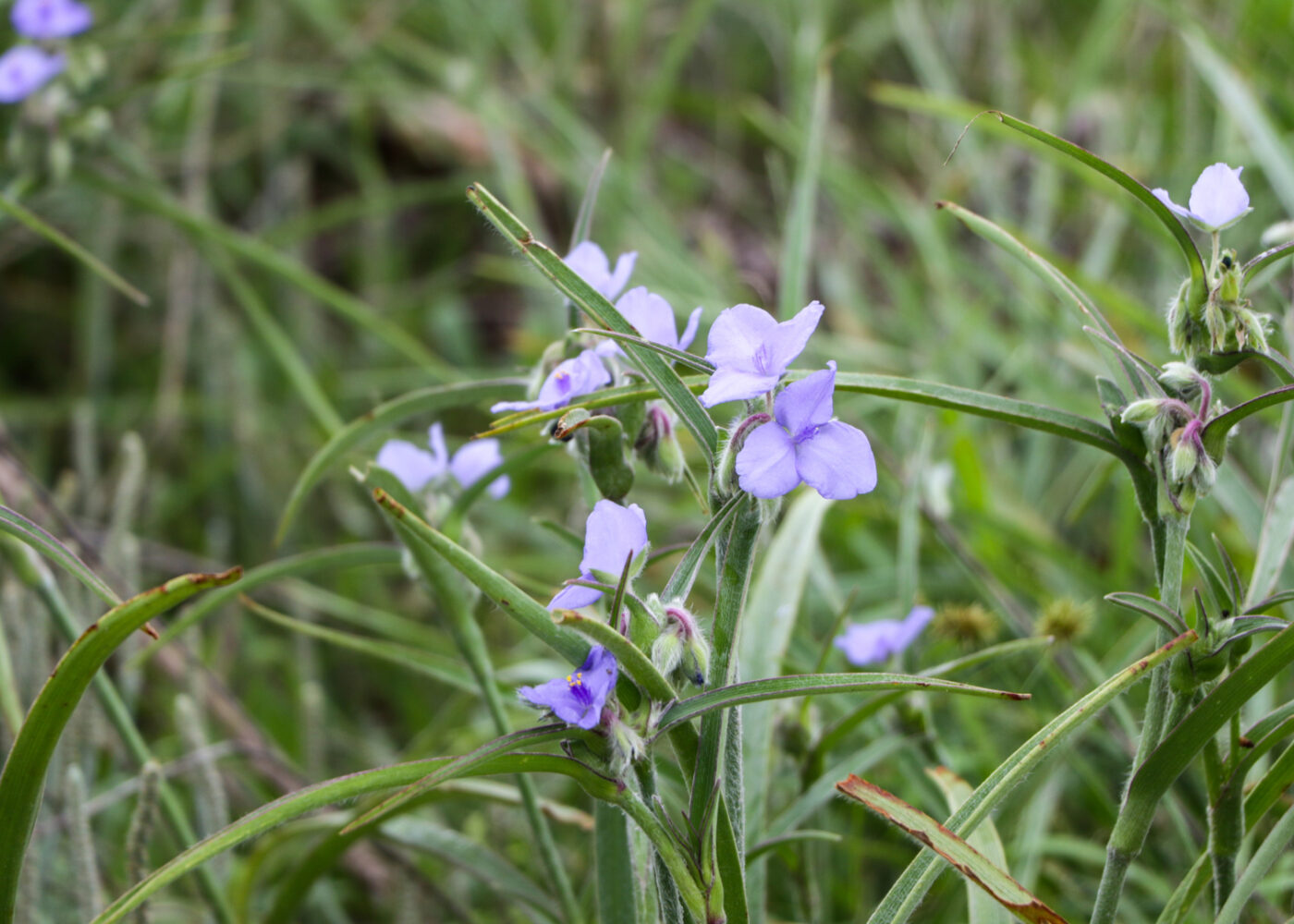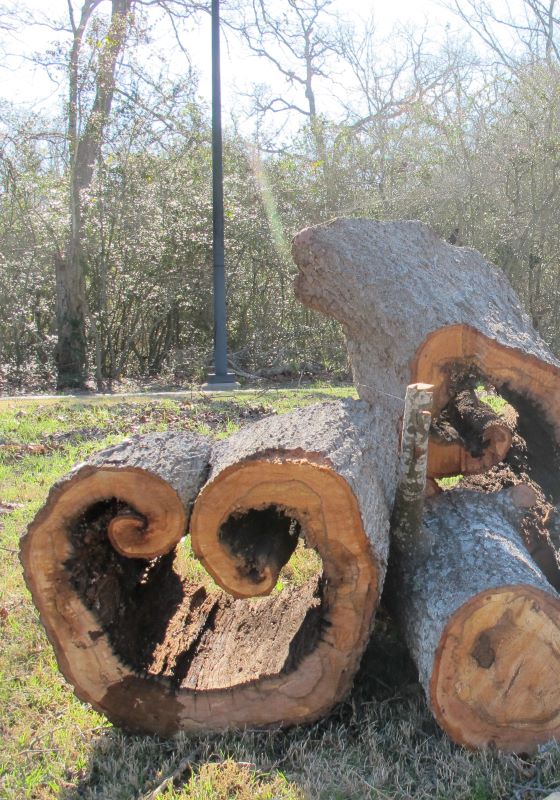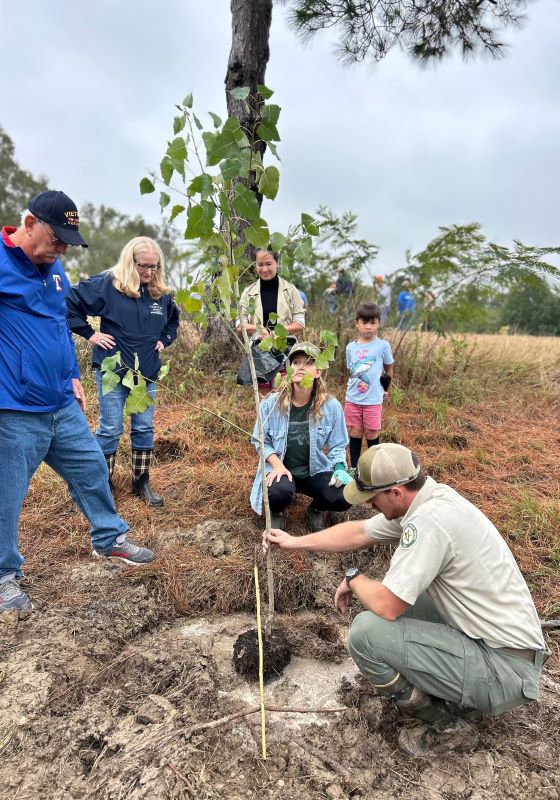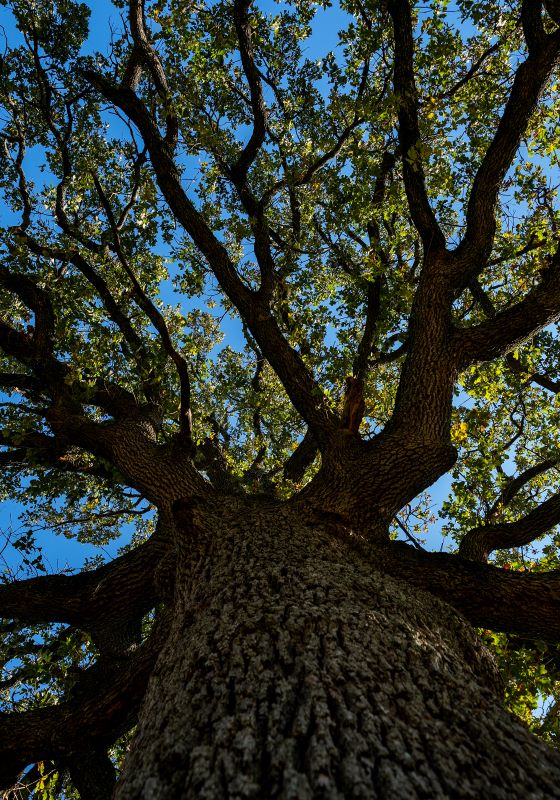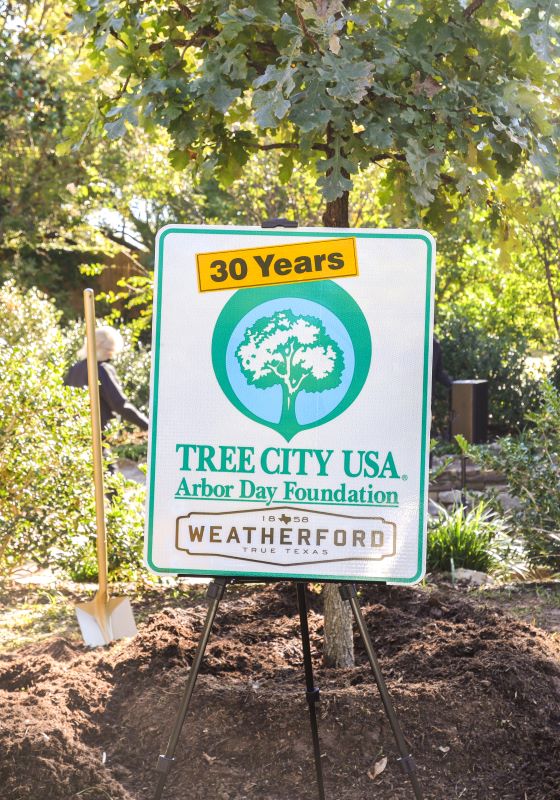Our Community Forestry Program focuses on building local capacity to help communities develop sustainable programs that provide Texans with healthy trees and forests.
Texas continues to be one of the fastest growing states in the nation. Trees provide many benefits to growing communities including improving air quality by filtering pollutants, reducing heat, and helping to manage stormwater and floods. Trees and access to green space are even critical to public health.
Our foresters help communities reap these benefits. They act as facilitators, bringing together partners to develop and manage their community canopy.
By engaging and training local leaders, the program helps increase public awareness of the value of trees, raises the skill level of local tree workers, sets quality standards for tree planting and care, and guides communities toward sustainable management of their community forests.
